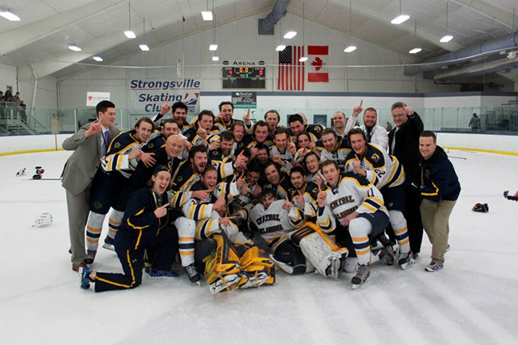Feature Photo Credit: University of Central Oklahoma
-Jenika Heim, EducationUSA Advisor in Canada
Because U.S. universities are focused on a “holistic approach” to admissions, they ask for more information (test scores, letters, writing samples) than Canadian universities do. This throws students off who have waited until Grade 12 to think about applications and then find themselves scrambling. To avoid rushing, it is important to begin pulling together the pieces of your application at the start of your Grade 11 year. If you are trying to be recruited for athletics, you should register in the NCAA Eligibility Center in Grade 10. Here is an overview of application requirements for universities in the United States:
Standardized tests
Most U.S. institutions are going to ask for either an SAT or ACT score. Studying for and scheduling standardized tests takes time, which is the main reason you should get started in Grade 11. Every school has their own admissions standards, so make sure to understand exactly which tests the schools you are applying to require. Some universities are test-optional, but will still take your scores into consideration if you submit them. Should you take the SAT or the ACT? You can often choose which one to take and submit, as these tests are weighted equally. Some universities may require SAT II Subject Tests (especially for Engineering majors). If you did your high school or CEGEP in a language other than English, you may also need to take the TOEFL.
WATCH: SAT vs. ACT: Which one should I choose?
Letters of Recommendation
You will have to submit 1-3 letters of recommendation from important adults that can attest to your character and academic performance. At least one letter should be from a teacher. One letter should be from your guidance counselor, so make sure to build a relationship with your counselor as early as Grade 10. One letter can be from a coach or supervisor who can lend insight into your drive outside the classroom, ties with community, and/or academic-life balance.
“Will you write a letter of recommendation for me?” Make sure to ask at least 2 months prior to the deadline.
Personal Statement(s)
Do not save this for last. It is important to spend some time brainstorming and soul-searching before you write your personal statement(s), so that you are able to weave a comprehensive story about you. Before you begin writing, you should have a clear idea of what your goals are and a few defining aspects of who you are. Tell a story that illuminates these things.
Do I need to be well-rounded?
At a recent education fair, I was asked this question by many different families, and the answer is it depends on what you mean by well-rounded. Universities don’t want to see that you have joined every after-school club and volunteered for every organization just for the sake of resume building. Universities do want to see that you are passionate about something outside of the classroom and have demonstrated that through community involvement and leadership roles. This can be through athletics, clubs, scouts, the arts, volunteering, part-time work, etc. Universities care that you have excelled in something outside of academics, hence “well-rounded.” There is no formula to being well-rounded, as each student’s passions and pursuits will be unique.
Are you passionate about photography? Make sure you highlight this in your extracurricular section.
WATCH: What kind of extracurricular activities will make a student application stand out?
If you have questions on the application process, check out the EducationUSA Canada website, follow us on Twitter, Like us on Facebook, contact your EducationUSA advisor at [email protected], or set-up a free 1:1 advising appointment today.
WATCH: Defining the U.S. application process for Canadians



